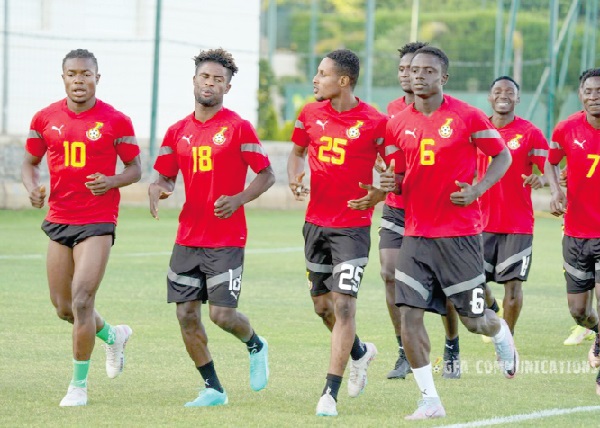
Wither Ghana’s youth football?
It has been a long time coming but the disgraceful display by the national Under-23 team, the Black Meteors, in the Under-23 African Cup of Nations in Morocco put the nail in the coffin of the death of youth soccer in Ghana.
Ghana’s first world trophy in football was in Under-17 when the Black Starlets won in Italy in 1991, and a second in 1995 in Ecuador. In 2009 the Black Satellites, the Under-20 national team won the trophy in Egypt.
So the youth side of national football in Ghana has been successful globally, as well as on the continental level.
However, the fortunes of our youth national teams have been dwindling over the past decade and a half. And the sudden departure of the Black Meteors in the Under-23 African Championship, which also serves as an Olympic qualifier has broken the camel’s back for many a Ghanaian football fan.
One major factor in this malaise of the dwindling fortunes of youth soccer in the country is the overbearing focus on Black Stars, which has come to represent football in the country rather than the football we knew worldwide.
Successive governments and the Ghana Football Association (GFA) have made the senior men’s national team, the Black Stars, as the only port of call when it comes to discipline in the country. For their benefit and to the benefit of a few other greedy and avaricious few, the Black Stars have been monetised and have become the cash cow of the elite in the country.
This has created a snowballing effect of hazardous consequences for the junior teams and here we are with an almost non-existent youth football.
Other factors and the way forward
The dwindling fortunes of Ghana's youth football can be attributed to several other factors, including:
The lack of infrastructure: Insufficient and inadequate sports facilities such as training grounds and proper football pitches make it challenging for young players to develop their skills and showcase their potential.
Limited financial support: Financial constraints, both at the individual and organisational level, hinder investment in youth football development programmes, coaching, training camps, and talent identification initiatives.
Inadequate coaching and mentoring: The absence of well-qualified coaches and mentors who can provide proper guidance and education to young players often restricts their development and ability to reach their full potential.
Emphasis on academics over sports: In many instances, Ghanaian society tends to prioritise academic achievements over sporting excellence, leading to fewer resources and support for youth football development.
Corruption and mismanagement: Instances of corruption and mismanagement within Ghana's football governing bodies have, in some cases, hindered the growth and development of youth football.
The way forward
To address these challenges and failing football at the junior level, it is crucial for stakeholders, including the government, sports organisations and communities to focus on improving infrastructure, investing in youth football programmes, providing quality coaching and mentorship, promoting a balanced approach to academics and sports, and ensuring transparent governance and accountability within the football system.
Economic impact
Football starts from age 13, and the economic impact of destroying the nascent stages of the discipline is dire. The UK football economy is over 10 billion dollars; Ghana can start by building a robust soccer programme to create jobs for the youth and others in the value chain of soccer. Let's act now to save our sport.